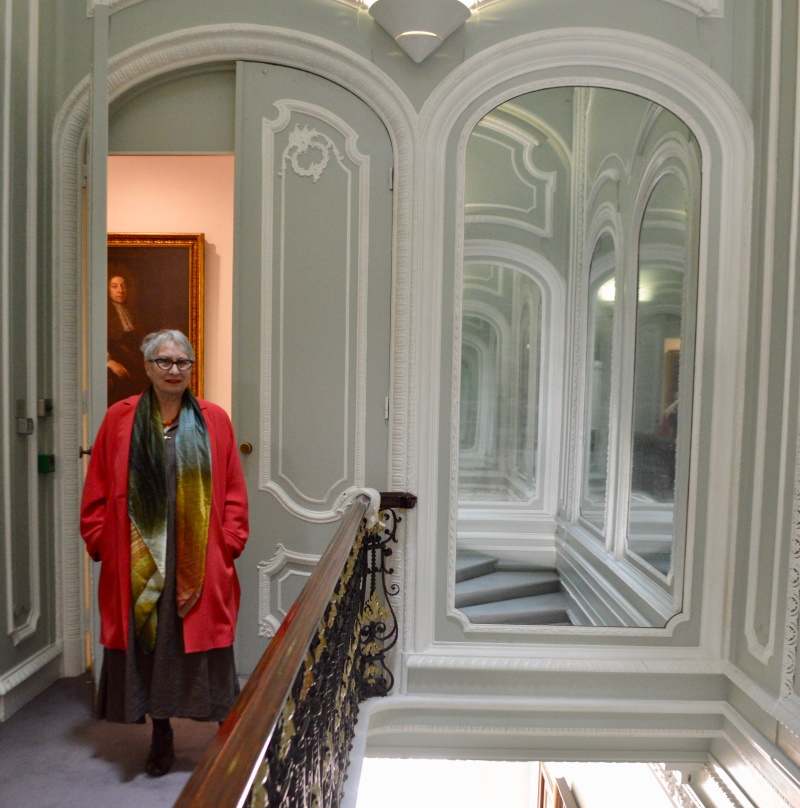Dr Leor Zmigrod, an experimental psychologist at the University of Cambridge, explores how diversity plays an important role in the peer review system.

The theme of this year’s Peer Review Week is ‘Identity in Peer Review’. In this blog post, Dr Leor Zmigrod, an experimental psychologist at the University of Cambridge, explores how diversity plays an important role in the peer review system. Leor’s research combines methods from experimental psychology, cognitive science, political science, and neuroscience to investigate the psychology of ideological adherence and group identity formation. She recently Guest Edited a theme issue of the Royal Society journal Philosophical Transactions B on ‘The political brain: neurocognitive and computational mechanisms’.
Science is like a party: it is only as good as who is invited
A big dimension of science involves invitations – invitations of experts to critique the research that is being done, to champion new ways of thinking, or to help decide which research should be funded and which should not. This is called the peer review system. It helps to ensure that science is objective, rigorous, and reliable. We therefore need to think carefully and critically about who we invite to participate and what happens when we don’t invite certain groups of researchers.
In this way, science is like a party: it is only as good as who is invited. It can be tempting to invite only familiar, like-minded people who resemble us, or the popular people who are always invited. However, not only is that boring and repetitive – we don’t learn anything new. We start to create echo-chambers and the uninvited people don’t get a chance to contribute to the fun or introduce their own interpretations. It means that old traditions prevail, and there are fewer opportunities to innovate or challenge the status quo.
Gatekeepers are frequently not representative of the many brilliant, creative, and rigorous scientists in the field
Scientific progress and reason depend on this peer review system, in which editors, reviewers, and funding committees are the gatekeepers of what kind of science is published, supported, and celebrated. Being an editor or reviewer offers a range of opportunities to learn about the latest research being conducted in the field, help to advance new innovations or directions, promote new and risky lines of research, and offer corrections when the quality of the research can be augmented or enhanced.
However, when we look at who tends to be invited to be a reviewer or editor, these gatekeepers are frequently not representative of the many brilliant, creative, and rigorous scientists in the field. For example, even after accounting for their numerical underrepresentation in science, women are significantly underrepresented as reviewers and editors. So even in fields where 40% of the scientific authors are women, they only make up about 25% of the editors in the field. This unbalanced contribution to the peer-review chain is unfortunately consistent across the world and across many fields. Sadly this inequity is improving very slowly and it is expected that – without some kind of action or awareness – women will only be adequately represented in scientific reviewing and editing in around 15-20 years’ time or more.
Equity and equality can be rapidly achieved if we pay attention to inviting a diverse range of researchers along multiple axes of diversity
Luckily, because the peer review system is based on invitations (like our imaginary party), it is actually fairly straightforward to correct for unequal representation. We just need to re-evaluate and expand the scope of our invitations. Equity and equality can be rapidly achieved if we pay attention to inviting a diverse range of researchers along multiple axes of diversity. Some examples of diversity include gender, career stage, and geographical diversity.
Encouraging a balance between the wisdom and expertise of senior researchers with the fresh perspectives of early career researchers is particularly valuable in newly emerging or rapidly accelerating scientific fields. Thomas Kuhn already wrote in his influential The Structure of Scientific Revolutions that paradigm shifts can only occur when researchers experience a radical change in perspective and focus. Such a change often requires the imaginative lens of new generations of scientists, who can re-assess the evidence base or existing methodologies unencumbered by decades of old scientific practices. Scientists in positions of power as publishing editors therefore have a responsibility to offer opportunities to scholars at various career stages with potential to reimagine the field’s assumptions and craft new trajectories.
In a digital, interconnected world, it has never been easier to extend our invitations to scholars everywhere
Diversity and plurality are especially important when the science's subject matter involves human beings who exist in complex social and cultural spheres; if we want to understand what is universal and what is culturally specific about human cognition, we must be attuned to fostering multiple dimensions of diversity in experiments' producers, participants, and peer reviewers. New online technologies are now transforming the accessibility and diversity of research participants, allowing researchers to reach participants in remote corners of the world. But these methodologies could be easily misused or misconstrued without local researchers and local pools of knowledge regarding cultural and linguistic norms, expectations, and behaviours. Identity is information. Editorial practices can powerfully build bridges between researchers in different cultural and geographical contexts, encouraging collaboration, replication, productive disputes, and exchange of approaches. In a digital, interconnected world, it has never been easier to extend our invitations to scholars everywhere – and we should.
The objectivity of science is collectively constructed
One of the most beautiful and troubling aspects of science is that although it seeks to be an objective and rigorous approach to understanding the world, its objectivity is not guaranteed. In fact, the objectivity of science is collectively constructed; research is only rigorous and neutral if we take steps to ensure that it reflects the world which it seeks to illuminate. Actively fostering plurality in the peer review system is a goal that will not only improve the rigor and resonance of current science, but will also help cultivate scientific communities that are inclusive, productive, and enjoyable places for us to build knowledge about the natural world and ourselves.
The Royal Society’s publishing team is proactively working to increase diversity across its Editorial Boards and reviewer lists. We also actively work with Guest Editors to balance geographical diversity, gender and career stage in our invited contributions to theme issues.
Find out how to volunteer to review for the Royal Society’s journals, and the benefits that we offer our reviewers.






